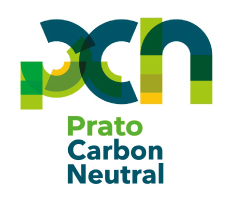Ultimo aggiornamento: 08/10/2024
The Action Plan
To achieve climate neutrality by 2030, ahead of the 2050 deadline fixed by the EU climate law.
The selected cities will have eight years available to achieve climate neutrality by implementing research and innovation actions that will concern sustainable mobility, energy efficiency and green urban planning. The proposed sustainability strategies will be able to work jointly with other European programmes, such as those relating to measures for adapting to climate change, restoring water and oceans and maintaining the well-being of the soil and people.
The approach envisaged by the project to contain climate change is holistic and integrated: the one hundred selected cities in fact are called to intervene with a general action plan, capable of bringing together all the sectors of interest and inherent to energy, construction, waste and transport management, circular economy.
A commitment that will involve both citizens and public and private research organizations for the achievement of the common goal: the shared transition towards a more sustainable future.
The first step that all cities must take is the signing of the Climate City Contract.
Climate City Contract
The 100 pilot cities that have taken up the challenge of becoming climate-neutral by 2030 will sign a "Climate City Contract", which is a contract adapted to the realities of each city that includes everyone's voices at all levels.
The Climate City Contract will give people and civil society an active role, provide new platforms for action and better resources to design and implement climate action.
The clear and tangible commitments made by the cities in the citizens' climate contracts will allow them to dialogue with the European, national and regional authorities but above all with the population to achieve this ambitious goal.
While not a legally binding instrument, the contract constitutes a clear and visible political commitment towards both Europe and national/regional authorities and the citizenship itself.
PAESC
The Municipality of Prato joined the Covenant of Mayors in April 2014, sharing with the European Commission the commitment
to be able to reduce CO2 emissions by at least 20% by 2020.
In April 2022, the Municipality of Prato was selected as part of the EU project "100 climate-neutral and smart cities by 2030".
The mission's goal is to build one hundred climate-neutral cities by 2030 and ensure they serve as hubs of experimentation
and innovation to enable all European cities to follow suit by 2050.
To this end, the Municipality of Prato will have to present an Action Plan for Climate Neutrality that will have 2019 as the base year
of the inventory.
Following the new climate neutrality objectives set by the EU project "100 climate-neutral and smart cities by 2030",
the Municipality has given a mandate to update the PAESC, approved in 2015, by including the part of adaptation to climate change
and updating the emissions inventory and targets.
Therefore, in the definition of this PAESC:
- climate neutrality has been defined as a goal;
- 2019 has been chosen as the inventory reference year;
- emissions for the waste sector were calculated, to which scope 3 emissions (i.e. emissions produced by Prato's waste
but outside its territory) were also associated; - the part of adaptation to climate change has been included with respect to the PAES previously drafted and approved.
The choice to align the Climate Neutrality Action Plan and the PAESC stems from a simplification of the monitoring phase of the
targets and guarantees a higher level of ambition than the minimum emission reduction targets of 55%, set out in the commitment
of the signatories of the Covenant of Mayors initiative, aiming at the complete neutralization of emissions by 2030.
To find out more, download the PowerPoint presentation (263.17 KB) 
Download the full text (20.02 MB) 
